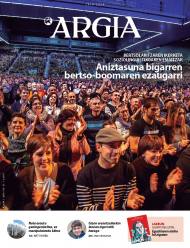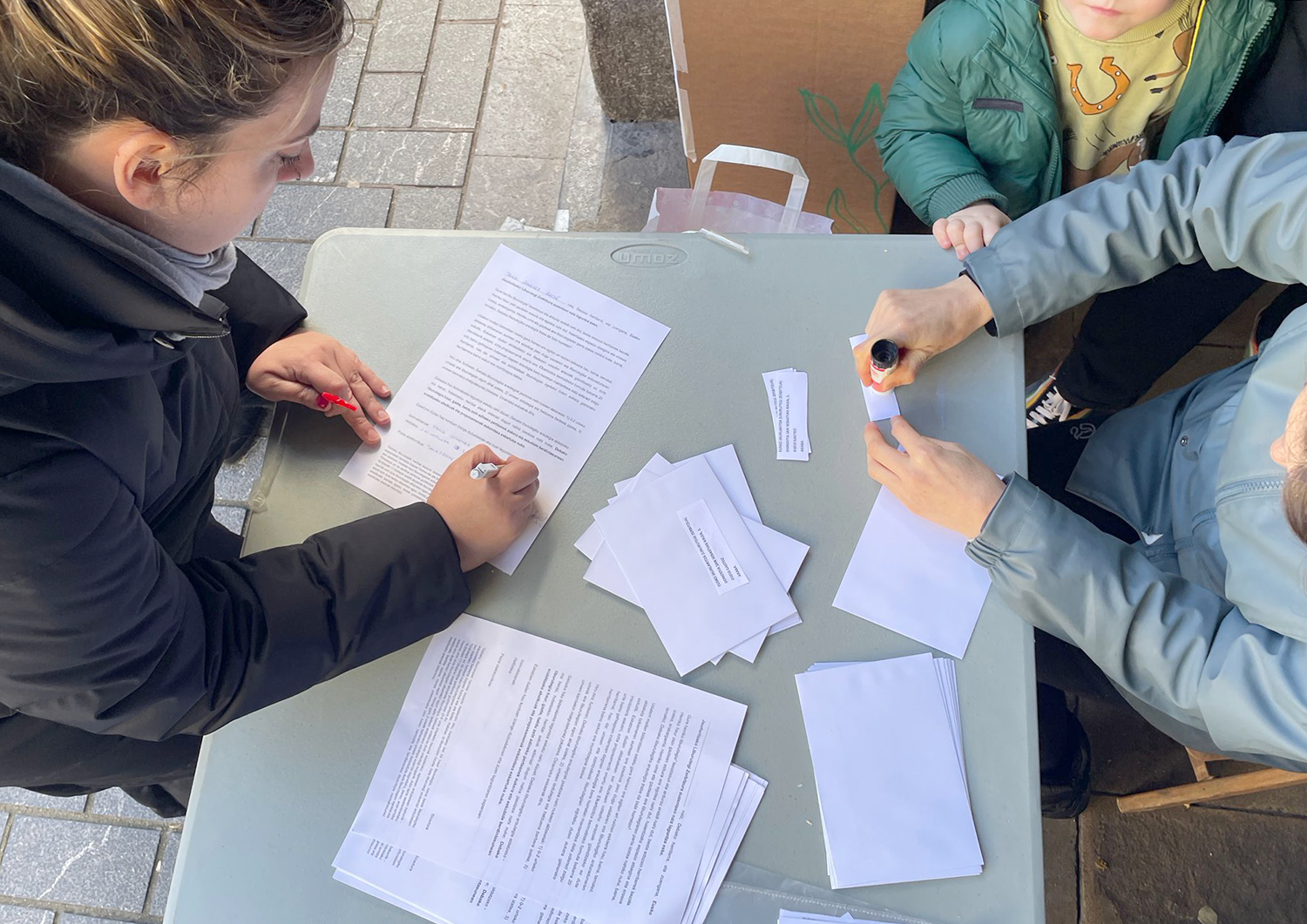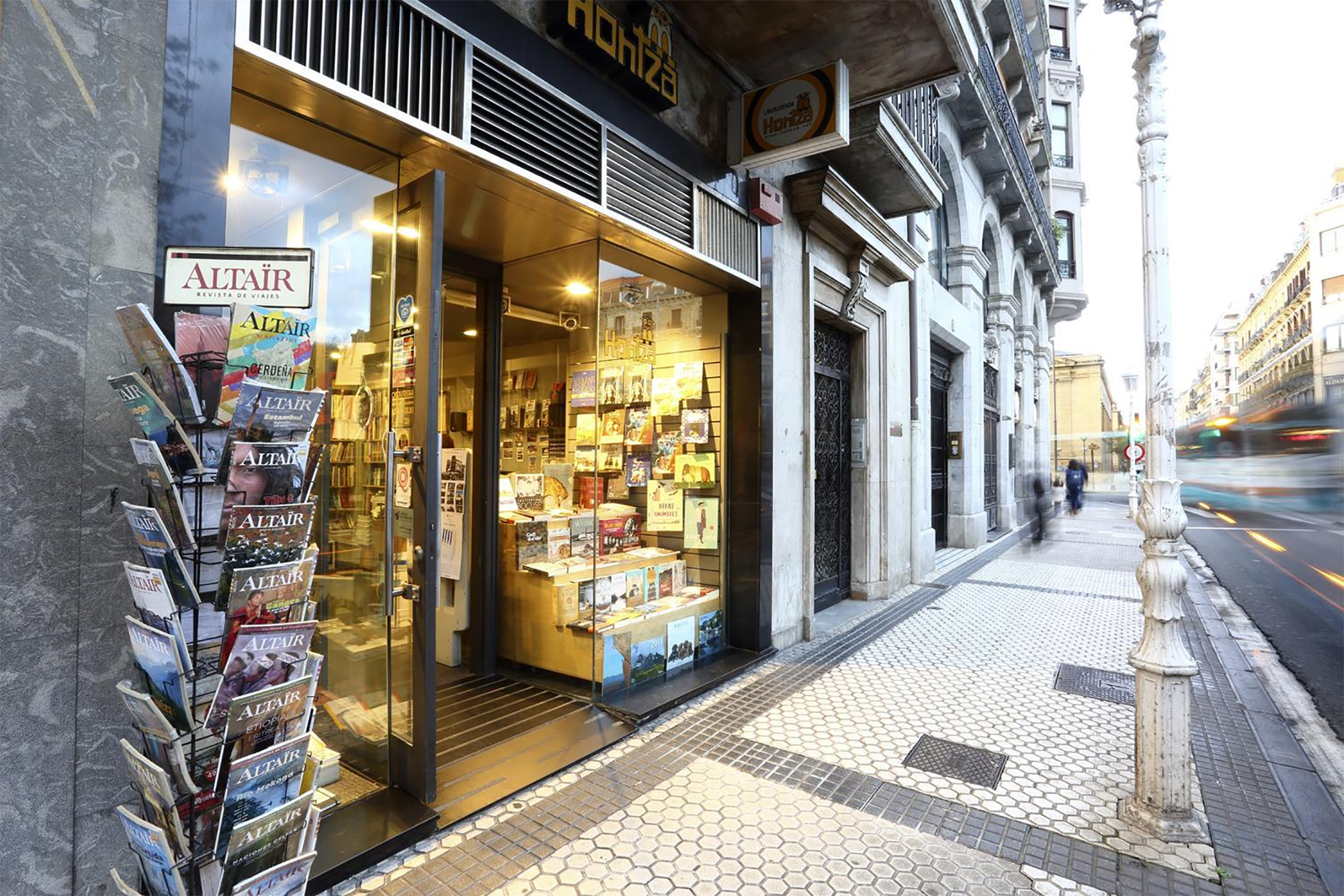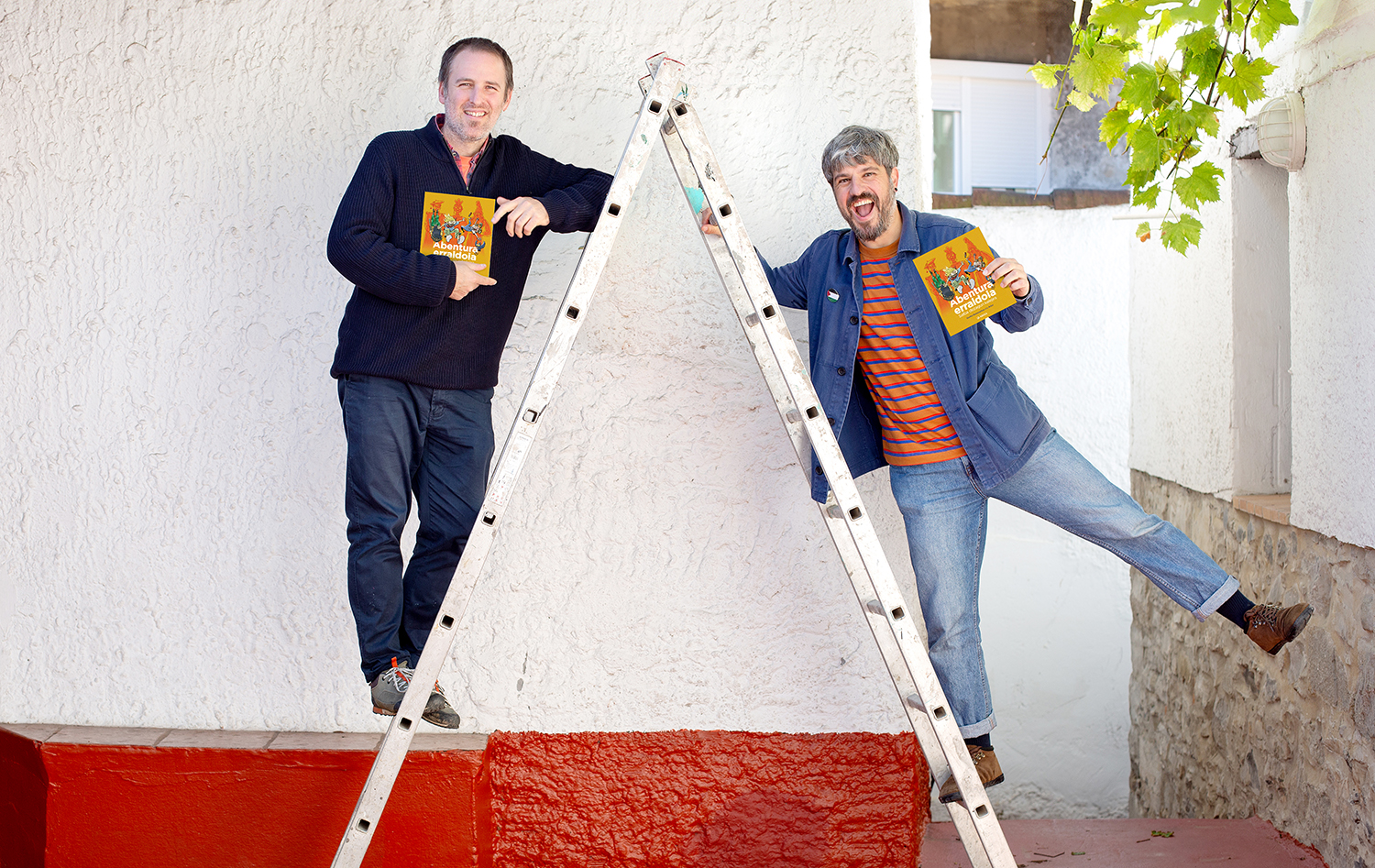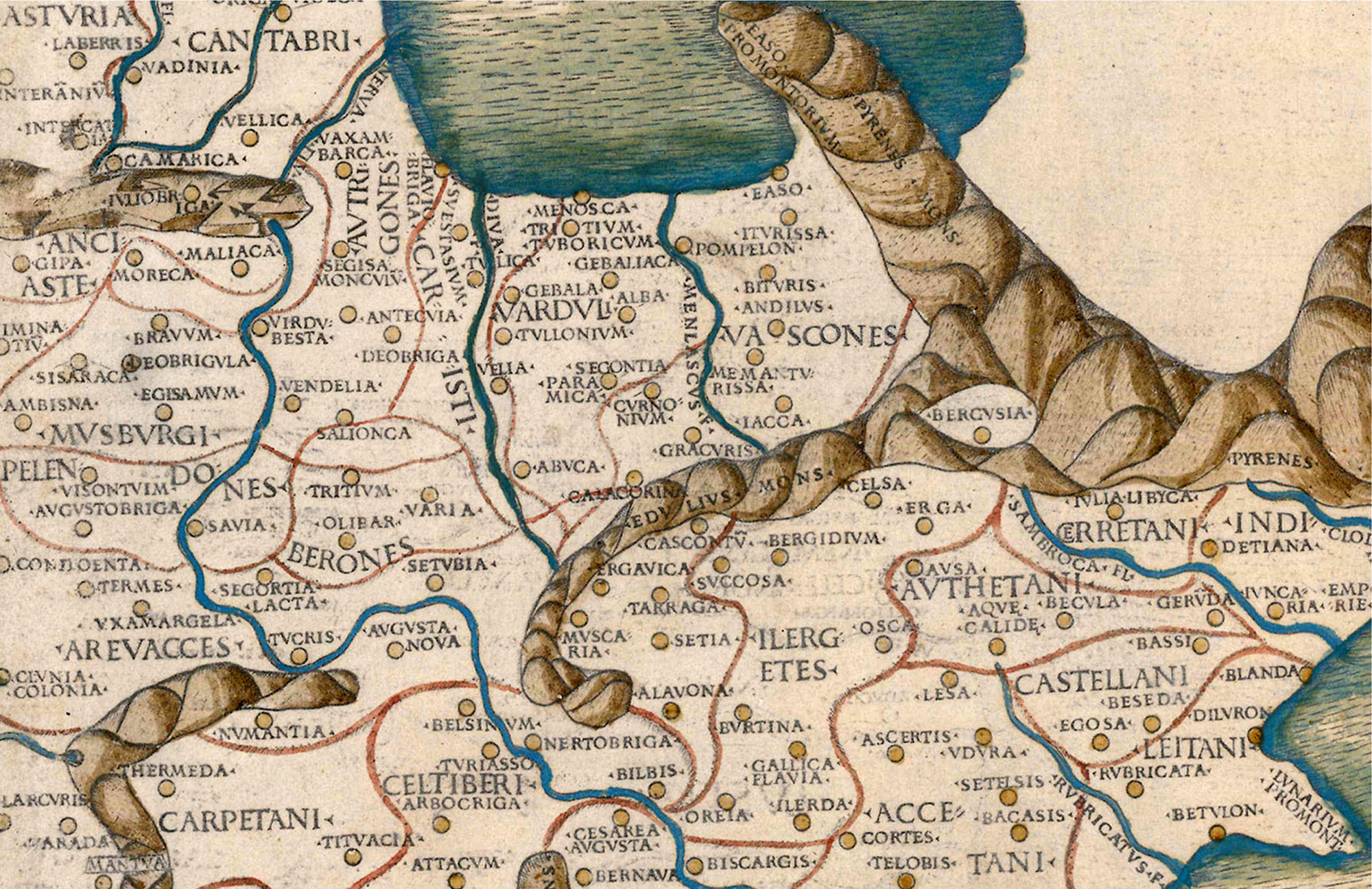"They're driving the inpersonal library model, and I don't agree."
- Berragu is the only traveling library in Navarre. The librarian of Aurizberri, with the help of his new Biblioneta, is expanding and maturing a trajectory that began about twenty years ago. Mari Mar Agós is a librarian of Aurizberri and, above all, a reader.
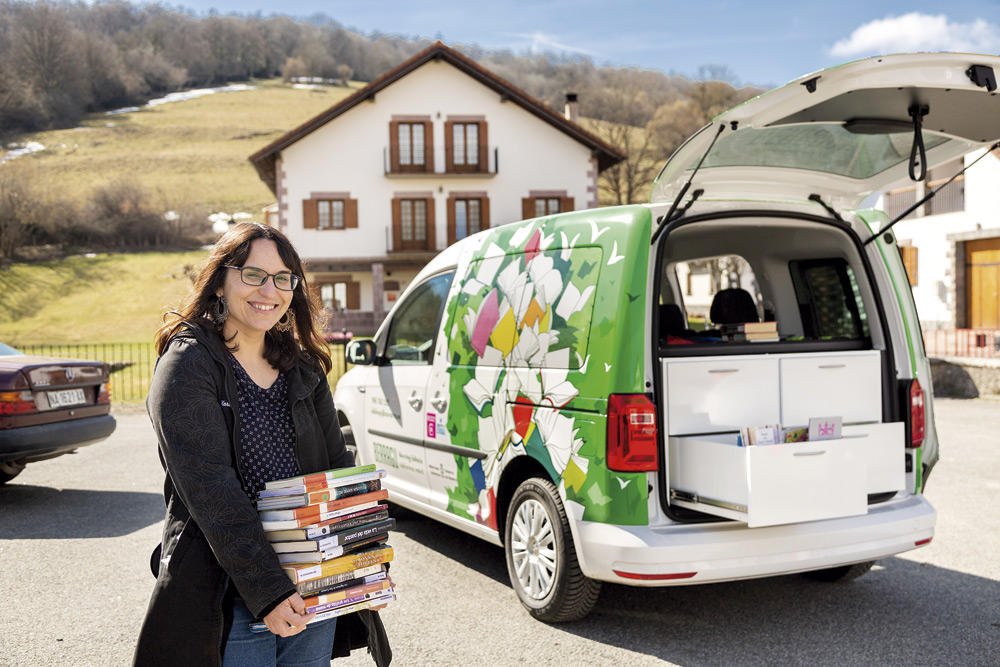
Ikasketaz kazetaria eta bokazioz liburuzaina, Erronkariko eta Berako liburutegietan aritu ondoren, duela sei urtez geroztik Aurizberriko liburuzaina da. Pirinio aldeko liburutegi txikian 3.000 pertsona ingururi ematen die zerbitzua bai haren egoitzan, bai etxez etxe liburutegi mugikorraren bidez. Sari garrantzitsuak jaso ditu: 2016an 5.000 biztanle baino gutxiagoko udalerrien proiektu onenaren Espainiako María Moliner Saria, 2017an Espainiar Estatuko liburutegi mugikor onenaren saria, eta iaz Irakurketa Sustatzeko María Moliner Sarian accesita lortu zuen. Urtarrilean beste berri on bat izan dute: Biblioneta. Nafarroako Gobernuaren dirulaguntzaren bidez liburuak etxez etxe banatzeko ibilgailua dute orain.
Why is it called Berragu, a mobile library?
Because that's the name of the mountain that we see from the window.
What exactly does it consist of?
The Berragu project was launched in 1998 by Martin Saragueta, the former librarian, to provide home service to the inhabitants of 30 villages in the Pyrenees. I have made some novelties and now I have added to individual users some collectives: The schools of Erro, Auritz, Lakabe, Garralda and Luzaide-Arnegi, Irati Irratia, the residence of the elderly Amma Ibañeta, the Zandueta children's center and the Euskaltegis of AEK, among others. In total we have 200 customers, both individual and collective.
How does the distribution work?
I go out on Thursdays to make the distribution. We have the whole area divided into four tours and each week I make one. A few days before I leave, I call customers on the phone to find out if they've finished the books and if they want something else. Many times I make recommendations to them, and I propose books and videos that they might like.
In some villages, especially in winter, loans are raised in a place where there is no need to go from home to home, and I go there to look for them. In Valcarlos, for example, they are picked up in the hairdresser. Anyway, now with the new van it's much easier to move.
The Biblioneta has arrived in January. Isn't that good news?
Yes. The Government of Navarra has granted us a special grant of EUR 22,000 and we were able to design the type of vehicle we needed for this service. It is tailor-made for us. The decor is also very nice and eye-catching and serves to promote the service. When the Biblioneta came, a lot of people went out to meet him and the children prepared him a nice welcome banner. It was very exciting for everyone and also for the representatives of the Department of Culture.
How did you do the distribution so far?
My old car, as I could. But in the end, it has failed me only once.
In the Pyrenees, the winters are very long. How do you fix yourself with snow?
I remember the first winter the snow layer was higher than I did. Electricity went away often and I didn't know my walks or my customers well. In the villages here, for example, more than street names and surnames are used for house names, and in addition, a lot of people have names nicknames, while I in the tiles had only official names and surnames. It was hard for me to get to know everything. On the other hand, in winter I organize my excursions sometimes according to weather conditions: Valcarlos and Aezkoa are the hardest. When there is a lot of snow I leave them for another week and I go to Arce or Erro.
How much coffee do you drink on distribution days?
The first year I didn't dare to say no, and I took many. Now I have learned and not so much, but something hot is always appreciated especially on cold days. I go very willingly to the people and they welcome me kindly in their house. The bad thing is that I go with very little time, always in a hurry. They are very calm and eager to speak, and I am the other way around. I believe that we have to improve in order to
be able to devote more time to the gente.Los cuts forced us to lower the number of hours of delivery, but now with the new director-general we have been able to extend the number of hours keeping the time of residence.
You obviously like to be a field librarian.
Yes. A lot of it. I was four years in Roncal before coming here and, overcome by the opposition, I got Bera Square. I was there when the librarian who was here asked for the change of location for the Library of Navarra, in Pamplona. I'm here very close to people. It's very enriching both personally and professionally, and I think all librarians should go through this experience.
I believe that library services are driving the inpersonal library model, and I disagree. On the contrary, they want to attach importance to the social library in order to encourage reading in groups. I believe that we should treat everyone so closely and not just focus on collectives.
On the other hand, I believe that there is also a need for flexibility in this trade. If a customer comes to me from Abaurrea Alta after going twenty-four kilometers, I won't send him empty hands because he hasn't brought the card from the library.
Having a vocation is very important and today we are carrying out very nice projects in the small libraries of the peoples.

What does the library give to a small town?
The library is a meeting point. In the evenings there is nothing more open in winter and many people come to the library. Those who come to the music school, to the pediment or to the shop, those who work here and the children are the ones who go the most. Here we are very comfortable, very well, and we do all kinds of activities for adults and young people: computer courses, storytellers, lectures…
Other librarians complain that the things they organize in large libraries are not frequented. Quite the opposite here. We have eighteen chairs and many times more than 40 people come together.
As we do not have money, we usually invite people, associations and collectives from the area to give workshops and talks in exchange for money. Sometimes writers come to present their books.
Do people live quieter in the villages?
The difference between the boys and girls here and those who come from Pamplona on Friday or summer is noticeable. The people of Pamplona immediately ask for wifi, tablet… they don’t have much peace of mind to read a book, paint or be quiet. Moreover, the Internet connection here is very slow and they have no patience.
"In this library, the Pyrenean themes are the most read, they are much more successful than Dolores Redondo"
Have you always been clear that you wanted to live in a small town?
I'm from Pamplona, but my father was a teacher and walked through the villages, so during the course we went with him. We went back to Pamplona in summer. I have been living outside the city for more than twenty years. I live in Arriasgoti-Lizoain, a town of eight people, Urrizelki. Very quiet. My partner is a pastor, as his father was, we make cheese and we live at a different rate. When I go to the Library of Navarra, I think my whole little library enters its bathroom. I don't want that for me.
What is the project that you have now been awarded?
It's called The Mountain of Tales. We've made a kind of story between classic and new stories. We have structured all the initiatives carried out throughout the year. Some of them have been very innovative. One, for example, was called "Dog Stories." The two children with dyslexia read stories to the dogs, and it went very well because the children felt that the animals were not judging them all the time. Another proposal was “Landarte”. We turned the people on the stage of a story with the help of the artist Leire Urbeltz. The clients were the characters in this story and the new technologies were the magic of the story. It was very nice.
Now we have another project. The so-called “Once Eight Libraries”, we are doing it in collaboration with seven other small libraries. Each library has prepared the reading guide for a story, activities and workshops, and we are spending a month to month from one library to another. It's a collaborative work, very interesting.

What kind of books do your customers like the most?
Each year we make a list of the ten most read books and usually here there are always the Pyrenean themes, the authors of them or works related to tradition and life here. They certainly have much more success than Dolores Redondo.
The involvement of customers in the purchase of books seems to me to be very important. I always try to meet their demands. Our budgets have now risen and we are better off in the libraries of the peoples.
Why is reading good?
Books, stories in general, open up windows. They make many worlds known to us. They give us another point of view to look at the world.
“Ni beti landa eremuko liburuzaina izan naiz. Behin, formakuntza ikastaro batean, egokitu zitzaidan Nafarroako Liburutegi orokorrean jendaurrean aritzea. Ostiral arratsaldea zen eta ikaragarrizko jendetza zebilen liburu-maileguan. Harrera-mahaian nengoela, gure lana supermerkatuko kutxazainena iruditu zitzaidan, bizi-bizi maileguak egiten, jendeari kasik begiratu gabe. Orduan, nire modura aritzea erabaki nuen: ‘Kaixo, zer moduz zaude…’, esanez agurtzen nituen bezeroak eta bere izenez deitzen nien, txartelean izena agertzen delako. Eta galdetzen nien ea itzultzen ari ziren liburua haien gustukoa izan zen edo ea estilo horretako beste bat nahi ote zuten. Nobedade interesgarriak komentatzen nizkien edo laguntzarik behar ote zuten galdetu, adibidez, liburuen erreserbak on-line egiteko.
Nire ondoan zegoen lankideak esaten zidan azkarrago ibiltzeko ilara ikaragarria sortzen ari zelako nire postuan. Ilara gero eta gehiago luzatzen ari zela ikusita erabiltzaileei eskatu zieten beste postuetatik pasatzeko. Baina hura sorpresa! Nire ilara luzeko pertsona bakar bat joan zen. Beste guztiek esan zuten nirekin nahiago zutela. Nik uste dut jendeak eskertzen duela zerbitzua ez horren hotza izatea, egiten ari ginen ikastaroan kontrakoa esaten baziguten ere. Han zioten erabiltzaileek autonomoak izan behar dutela eta ez dutela langileen laguntzaren menpe egon behar. Areago, ez dela harreman zuzenik izan behar bezeroekin. Nik azaldu nien erabat kontrakoa egiten dudala, izan ere, etxez etxe joaten naiz liburuak eramaten. Jarrera hotz hori ez dut ulertzen”.
“Nafarroako Liburutegien legeak dio 3.000 biztanle baino gehiago behar direla liburutegi publikoa izateko. Guk hiru bailara behar ditugu kopuru hori lortzeko: Erroibar, Artzibar, Aezkoa eta zenbait herri: Auritz, Orreaga, Orotz-Betelu eta Luzaide-Arnegi.
Erronkariko liburutegian Erronkari eta Zaraitzuko biztanleak hartzen dituzte, denera, 2.700 inguru. Ez dira 3.000ko gutxiengora iristen, baina zerbitzua mantentzen da oso garrantzitsua delako eta, gainera, liburutegi hori Nafarroako zaharrenetakoa delako. Espainiar Estatuan, hala ere, legea are zorrotzagoa da, han 5.000 biztanle izan behar dira”.
“Liburuzainok, maileguez gain, beste zeregin bat badugu. Gure bezeroek gauza gehiago eskatzen digute. Azken finean, ia dena dago interneten eta guk lortu behar duguna da liburutegiak kultura zabaltzeko tokiak izatea. Jarduerak, ikastaroak, solasaldiak, jokoen bidez hurbildu liburuetara… irakurketa beste ikuspuntu batetik begiratzeko moduak eskatzen dizkigute. Hori da gehien baloratzen dutena, eta ez horrenbeste liburu gehiago edo gutxiago izatea. Horregatik saiatzen gara, gero eta gehiago, haiengana bideratutako ekimen berritzaileak antolatzen”.
Party and recreation. Oral History of Rock Radical Vasco
Javier 'Jerry' Corral
Books, 2025
------------------------------------------------
Javier Corral ‘Jerry’ was a student of the first Journalism Promotion of the UPV, along with many other well-known names who have... [+]









